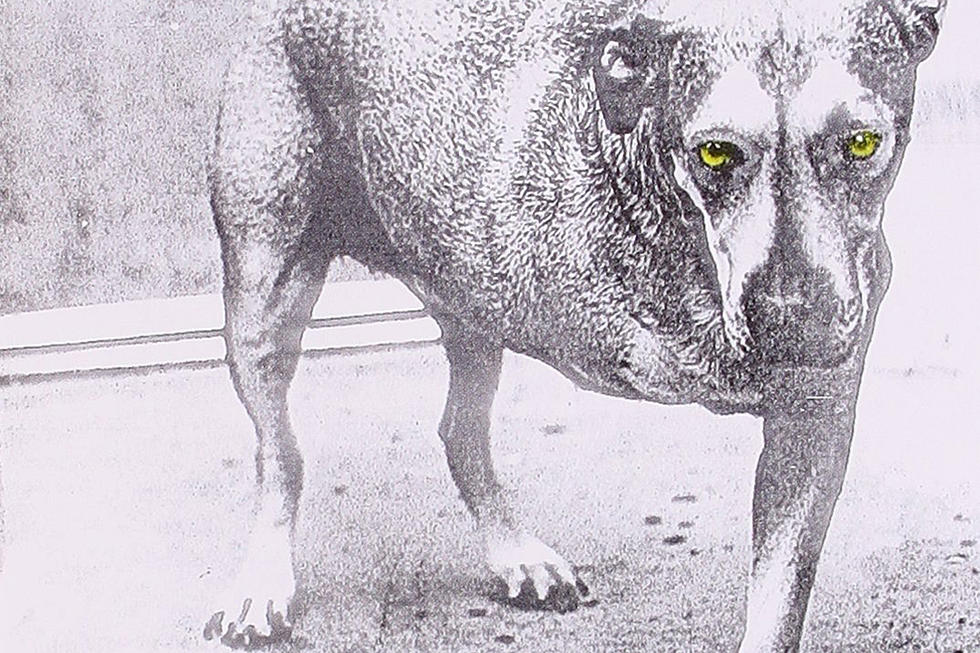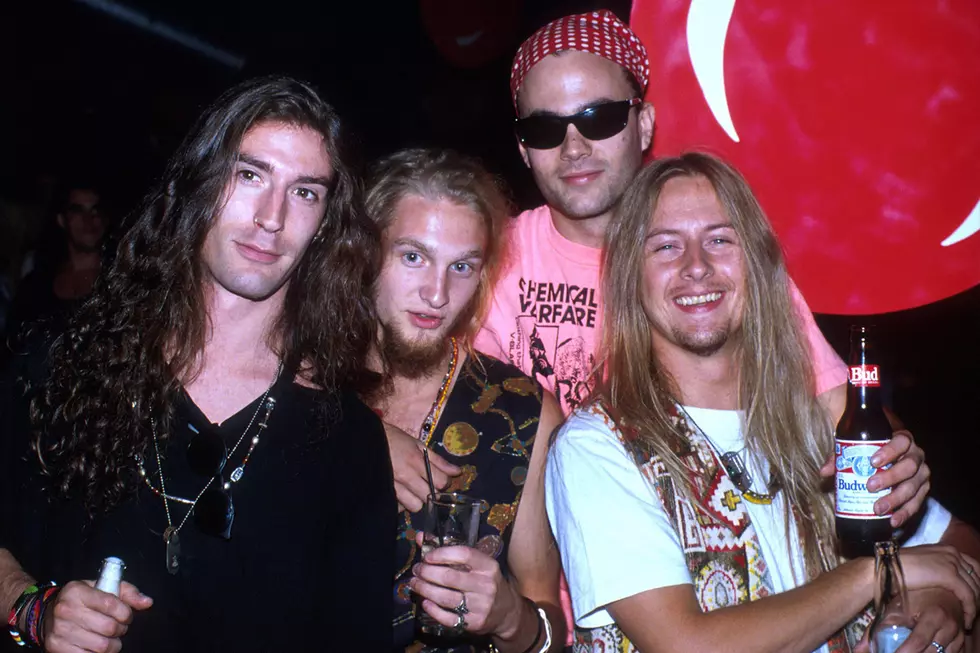
How Alice in Chains Evolved on Their Self-Titled 1995 Album
By the fall of 1995, the remnants of the grunge explosion were scattered about like someone had taken a baseball bat to the treasured family chinaware.
Let's consider the era's four biggest acts: Nirvana was finished when Kurt Cobain killed himself the year before. Soundgarden had embraced the mainstream but internally were coming apart at the seams, and Pearl Jam was locked into a losing battle with Ticketmaster and refusing to make videos.
The final act on the ballot, Alice in Chains, had been written off by fans and critics alike as just another drug casualty. Yet on Nov. 7, 1995, the band emerged with a tortured and twisted eponymous third full-length studio effort that, for the time being, suggested they were fully functional, alive and well.
“In the darkest hole, you'd be well advised / Not to plan my funeral 'fore the body dies,” harmonize guitarist Jerry Cantrell and frontman Layne Staley on the opening line to the album’s leadoff song and first single, “Grind,” a distinct attempt to quell any existing doubters.
Despite the boastfulness, all was not well with Alice in Chains. The troubled, addiction-battling Staley was by all accounts in his worst shape up ever at that point, with his weight having plummeted and heroin intake having risen substantially. This led Cantrell to do a good deal of the heavy lifting, even assuming lead vocal duties on three tracks. Coincidentally, they were on two of the four singles from the record – and the most popular – “Heaven Beside You” and “Over Now.”
Still, Alice in Chains hadn’t completely become Jerry’s band quite yet, as Staley still contributed the bulk of the lyrics, their transparency bold in detailing his addictions, despair and thoughts of death. “I could use some time to curl away” (“Brush Away”), “Pupils widen and change their hue” (“Frogs”) and “When I'm layin’, I'm still tryin’, concentrating on dyin'” (“Shame in You”) leave little to the imagination when it comes to the singer’s grievous state of mind.
Listen to Alice in Chains' 'Heaven Beside You'
Musically, there was a noticeable shift in the sound of Alice in Chains since 1992’s masterpiece Dirt. It may have been musical evolution, it may have been a conscious attempt to not repeat themselves or it may have had to do with bassist Mike Inez making his first appearance on an Alice in Chains LP. The rhythm section made up of he and drummer Sean Kinney were certainly locked into an impressive groove, from the punishing bottom end in “Again” to the gentle fade out of “Shame in You.”
Alice in Chains is arguably the most sonically balanced album in the band’s catalog, having benefited from the acoustic leanings of the Sap and Jar of Flies EPs. There was a sense of comfort in not having to balance the lighter moments of a song with a heavier part; see the aforementioned “Heaven Beside You” and “Over Now.”
Despite hitting No. 1 on the charts and reigniting a marked enthusiasm among its audience, Alice in Chains was not supported with a tour. The next live appearance by the group would be made the following April for a recording of MTV Unplugged, which, although displaying a shockingly frail Staley, became quickly renowned as one of the best in the series.
Early that summer, the band performed what would turn out to be their final shows with Staley – a high profile opening slot for the first four dates of the Kiss reunion tour. After the last show, the frontman overdosed and was hospitalized. Staley went into a self-imposed, homebound seclusion later, and died in the spring of 2002.
Top 100 '90s Rock Albums
More From Ultimate Classic Rock









